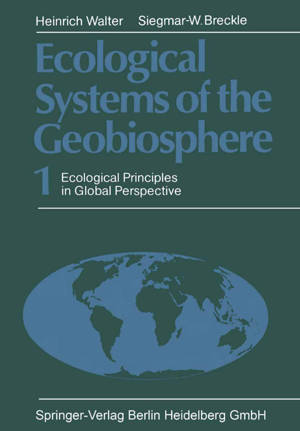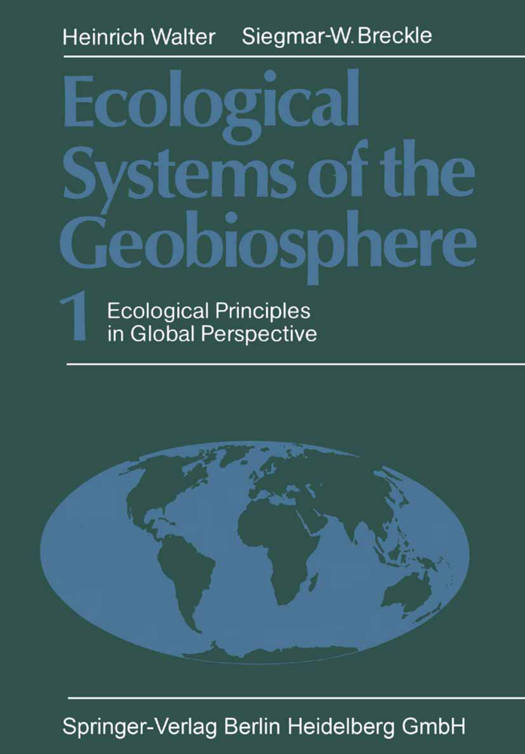
- Retrait gratuit dans votre magasin Club
- 7.000.000 titres dans notre catalogue
- Payer en toute sécurité
- Toujours un magasin près de chez vous
- Retrait gratuit dans votre magasin Club
- 7.000.0000 titres dans notre catalogue
- Payer en toute sécurité
- Toujours un magasin près de chez vous
Ecological Systems of the Geobiosphere
1 Ecological Principles in Global Perspective
Heinrich Walter, Siegmar W Breckle
Livre broché | Anglais
97,95 €
+ 195 points
Format
Description
Des Menschen Werk auf Erden kann vergehen, Doch Leben stets im Wandel wird bestehen. Heinrich Walter The importance of ecology for the fate of mankind is receiving ever wider recognition. A syncretic-holistic approach to ecology was recently given unexpected support by the well-known atomic physicist and pupil of Heisenberg, Fritjov Capra. In his book The Turning Point, published in 1982 in the U.S.A., Capra comments critically, from the viewpoint of the latest findings of subatomic physics, on the mechanical-analytical ap- proach which still predominates in the biological sciences, and adds some philosophical reflections. The following quotations are important ecolo- gically and may be of interest to biologists in general: "It is now becoming apparent that overemphasis on the scientific method and on rational, analytic thinking has led to attitudes that are profoundly anti-ecological. In truth, the understanding of ecosystems is hindered by the very nature of the rational mind. Rational thinking is linear, whereas ecological awareness arises from an intuition of non-linear systems .... The Cartesian view of the universe as a mechanical system provided a 'scientific' sanction for the manipulation and exploitation of nature that has become typical of Western culture .... The problem is that scientists, encouraged by their success in treating living organisms as machines, tend to believe that they are nothing but machines .... Modern physics can show the other sciences that scientific thinking does not necessarily have to be reductionist and mechanistic, that holistic and ecological views are also scientifically sound ....
Spécifications
Parties prenantes
- Auteur(s) :
- Traducteur(s):
- Editeur:
Contenu
- Nombre de pages :
- 244
- Langue:
- Anglais
Caractéristiques
- EAN:
- 9783662024393
- Date de parution :
- 09-10-13
- Format:
- Livre broché
- Format numérique:
- Trade paperback (VS)
- Dimensions :
- 170 mm x 244 mm
- Poids :
- 417 g

Les avis
Nous publions uniquement les avis qui respectent les conditions requises. Consultez nos conditions pour les avis.






